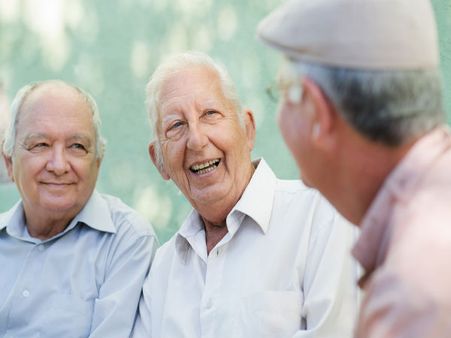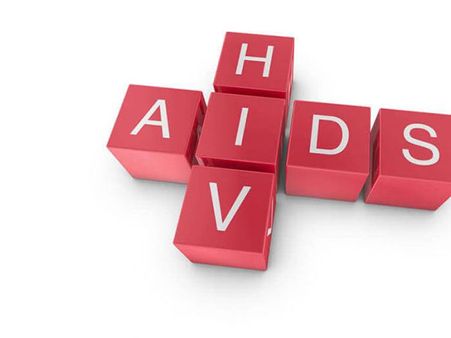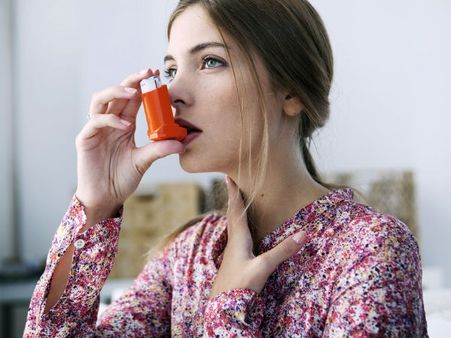Just In
- 8 hrs ago

- 9 hrs ago

- 12 hrs ago

- 12 hrs ago

Don't Miss
- Movies
 Nayanthara's Remuneration Touches New High; Becomes First South Actress To Charge Rs 10 Crore & Here's Why...
Nayanthara's Remuneration Touches New High; Becomes First South Actress To Charge Rs 10 Crore & Here's Why... - Finance
 1:10 Split, Rs 51 Dividend: Accumulate Tata Stock, TP Rs 170; Big Update On £1.25 Bn Investment
1:10 Split, Rs 51 Dividend: Accumulate Tata Stock, TP Rs 170; Big Update On £1.25 Bn Investment - News
 Harvey Weinstein's Conviction Overturned, Netizens Angered Over Elite Privilege
Harvey Weinstein's Conviction Overturned, Netizens Angered Over Elite Privilege - Sports
 T20 World Cup 2024: Waqar Younis Predicts Pakistan's 15-Man Squad; Drops This Express Pacer
T20 World Cup 2024: Waqar Younis Predicts Pakistan's 15-Man Squad; Drops This Express Pacer - Automobiles
 Royal Enfield Unveils Revolutionary Rentals & Tours Service: Check Out All Details Here
Royal Enfield Unveils Revolutionary Rentals & Tours Service: Check Out All Details Here - Technology
 Elon Musk’s X Is Launching a TV App Similar to YouTube for Watching Videos
Elon Musk’s X Is Launching a TV App Similar to YouTube for Watching Videos - Education
 AICTE introduces career portal for 3 million students, offering fully-sponsored trip to Silicon Valley
AICTE introduces career portal for 3 million students, offering fully-sponsored trip to Silicon Valley - Travel
 Escape to Kalimpong, Gangtok, and Darjeeling with IRCTC's Tour Package; Check Itinerary
Escape to Kalimpong, Gangtok, and Darjeeling with IRCTC's Tour Package; Check Itinerary
Coronavirus: Who Are At A Higher Risk Of Getting Infected
According to the Johns Hopkins University and Medicine, till date, coronavirus aka COVID-19 has claimed more than 17,159 deaths, infected 392,780 and 102,972 recovered. This global pandemic is sky-rocketing with each passing day affecting millions of people around the world.
Most individuals infected with coronavirus will experience mild to moderate symptoms and with proper treatment, it might go away within a few days. Watch out for symptoms like fever, cough and shortness of breath that may appear within 2-14 days after exposure.

Older people and people with pre-existing medical conditions such as diabetes, chronic respiratory disease, cardiovascular disease and cancer are more susceptible to develop this illness.
Read on to know who are at a higher risk of contracting COVID-19.


1. Older adults
Older adults who are 65 years and above are at a higher risk of contracting the novel coronavirus. As per the Centers for Disease Control and Prevention (CDC) data, in the U.S. an estimate of 31-70 per cent of older adults above 85 years old and 31-59 per cent of adults between 65-84 years old were hospitalised due to COVID-19. And an estimate of 10-27 per cent of adults above 85 years old and 4-11 per cent of adults between 65-84 years old died due to coronavirus.
Here's
what
older
people
can
do
to
protect
themselves:
- Have a healthy, well-balanced diet
- Exercise daily
- Get plenty of sleep
- Wash your hands with soap and water frequently
- Avoid close contact with people who are sick

2. People with HIV
Currently, the risk of COVID-19 for people with HIV is not known. However, people with HIV can get sick if they have a low CD4 cell count and if they are not on HIV treatment. Also, they can get sick with coronavirus based on their age and other underlying medical conditions.
Here's what people with HIV can do to protect themselves:
- Eat a well-balanced diet
- Lower stress
- Get at least eight hours of sleep
- Take your HIV medications on time


3. Pregnant women
During
pregnancy,
pregnant
women
experience
changes
in
their
bodies
that
may
increase
their
risk
of
contracting
COVID-19
and
other
viral
respiratory
infections,
such
as
influenza.
Here's
how
pregnant
women
can
protect
themselves:
- Avoid close contact with people who are sick
- Clean your hands often with soap and water or alcohol-based hand sanitiser


4. People with asthma
Asthmatic
patients
may
be
at
an
increased
risk
of
coronavirus
because
the
virus
attacks
your
respiratory
tract
(lungs,
nose
and
throat),
which
causes
an
asthma
attack
and
this
leads
to
pneumonia
and
acute
respiratory
disease.
Here's
how
asthmatic
patients
can
protect
themselves:
- Take your asthma medications as prescribed by the doctor
- Avoid things that trigger your asthma
- Use an inhaler when you have difficulty in breathing
- Clean your hands often with soap and water or alcohol-based hand sanitiser
- Stay at home to reduce your risk of being exposed to the virus.
- Clean and disinfect surfaces that are frequently touched such as doorknobs, tables, handles, desks, phones, toilets, keyboards and countertops to protect yourself against COVID-19.
To Conclude...
Currently,
there
is
no
specific
treatment
or
vaccine
to
prevent
coronavirus.
All
you
can
do
is
to
follow
precautionary
measures
to
prevent
the
risk
of
getting
infected
by
this
virus.
-
 healthCOVID Surge In India: Do You Need A COVID-19 Booster Shot?
healthCOVID Surge In India: Do You Need A COVID-19 Booster Shot? -
 disorders cureCommon COVID Symptoms In Fully Vaccinated Individuals: What You Should Know
disorders cureCommon COVID Symptoms In Fully Vaccinated Individuals: What You Should Know -
 wellnessMild COVID Linked To Life-Threatening Blood Clots, Increased Risk Of Cardiovascular Disease; Study
wellnessMild COVID Linked To Life-Threatening Blood Clots, Increased Risk Of Cardiovascular Disease; Study -
 wellnessCOVID-19 Variants In India: New COVID Variant May Pose Threat To Elderly People
wellnessCOVID-19 Variants In India: New COVID Variant May Pose Threat To Elderly People -
 basicsCovid-19 Linked To Early Onset Of Periods: What You Need To Know
basicsCovid-19 Linked To Early Onset Of Periods: What You Need To Know -
 wellnessCOVID XBB Variants Of Omicron In India: What You Should Know
wellnessCOVID XBB Variants Of Omicron In India: What You Should Know -
 disorders cureNew Omicron Subvariant BQ.1 Detected In Maharashtra: What You Should Know
disorders cureNew Omicron Subvariant BQ.1 Detected In Maharashtra: What You Should Know -
 disorders cureOmicron BF.7 In India, Risk Of Fresh Wave During Diwali: What You Should Know
disorders cureOmicron BF.7 In India, Risk Of Fresh Wave During Diwali: What You Should Know -
 wellnessCoronavirus Residues Might Be Causing Long COVID: New Study
wellnessCoronavirus Residues Might Be Causing Long COVID: New Study -
 wellnessCentury-Old TB Vaccine Could Be Effective Against Covid-19 And Other Infections: New Study
wellnessCentury-Old TB Vaccine Could Be Effective Against Covid-19 And Other Infections: New Study -
 disorders cureCovid-19 Patients At Risk Of Neurological & Psychiatric Conditions Two Years After The Infection: New Study
disorders cureCovid-19 Patients At Risk Of Neurological & Psychiatric Conditions Two Years After The Infection: New Study -
 wellnessCOVID In Smokers: An Expert Explains
wellnessCOVID In Smokers: An Expert Explains


 Click it and Unblock the Notifications
Click it and Unblock the Notifications



